USB Keeps Disconnecting and Reconnecting Windows 10/8/7
Perhaps, when you connect a USB device with the computer, the USB hub keeps disconnecting and reconnecting randomly on its own just like the following case from the internet:
I recently upgraded my Windows 7 gaming PC to Windows 10, and ever since I have been having problems with my USB devices. Every five minutes or so all of my USB devices will disconnect, and then reconnect. Is there a fix for this USB bug?
answers.microsoft.com
Some other issues, like Android phone keeps connecting and disconnecting from USB, USB C disconnecting, and unknown USB device keeps connecting and disconnecting, are the same thing. Usually, it could be a hardware or driver issue.
However, if all computer USB ports keep disconnecting and reconnecting Windows 10, the first thing you need to do is to make sure whether it can work fine on another computer. If it works well, it is quite possible that there is nothing wrong with the USB device itself.
On the other hand, you can also connect another normal working USB drive to the computer to check whether the USB connection is good. If USB disconnects after few seconds again, you should consider hardware or driver issues on Windows 10/8/7 more.
So, now let’s focus on the troubleshooting tips to help you get rid of USB disconnects after few seconds issue on Windows 10/8/7.
How to Fix USB Ports Keep Disconnecting and Reconnecting Windows 10
We will try four suggestions here which are proved to be effective:
- Reinstall the Universal Serial Bus controllers driver
- Turn off the Power Saving Option for the USB driver
- Install Universal Serial Bus controllers driver in Compatibility mode
- Run the Hardware and Devices Troubleshooter.
In the following contents, we will introduce them one by one.
Solution 1: Reinstall the Universal Serial Bus Controllers Driver
A driver issue can be the reason for USB devices disconnecting and reconnecting Windows 10. To solve a driver issue, you can reinstall the USB or Universal Serial Bus controllers driver in Drive Manager.
To do this job, you need to follow these steps:
Step 1: Press the Windows + X keys simultaneously and then click on the M key to open Device Manager.
Step 2: In the Device Manager window, please go to find the Universal Serial Bus controllers option and expand it. Then, you need to look for the listing which is related to your USB driver.
Usually, there are two different situations:
- If it is a regular USB drive, it will be listed as a USB Massive Storage Device.
- If USB 3.0 keeps disconnecting Windows 10/8/7, you need to look for USB 3.0 Extensible Host Controller.
Here, take the USB 3.0 device as an example.
Right-click on the Standard USB 3.0 eXtensible Host Controller option and choose the Uninstall option to uninstall it.
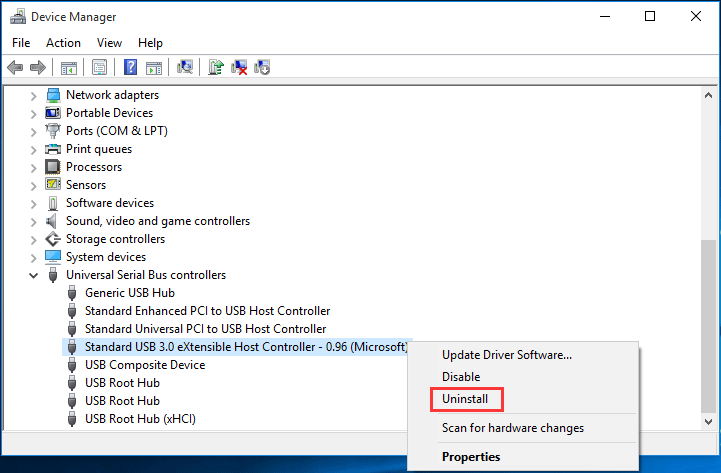
When the uninstallation process ends, you need to reboot your computer to allow Windows to reinstall the drivers automatically.
Then, go to check whether USB ports keep disconnecting and reconnecting Windows 10 issue is solved.
Solution 2: Turn off the Power Saving Option
Some users say that they solve USB keeps disconnecting and reconnecting issue by turning off the power option. If solution 1 doesn’t work, you can try this way to get rid of the issue.
Here we will show you this solution with its detailed steps as follows:
Take the USB 3.0 device as an example.
Step 1: You still need to enter the Device Manager interface and find the Universal Serial Bus controllers option.
Step 2: Right-click on the Standard USB 3.0 eXtensible Host Controller option and choose Properties from the pop-out list. Then, switch to the Power Management section. Next, uncheck the Allow the computer to turn off this device to save power option and press OK to keep the change.
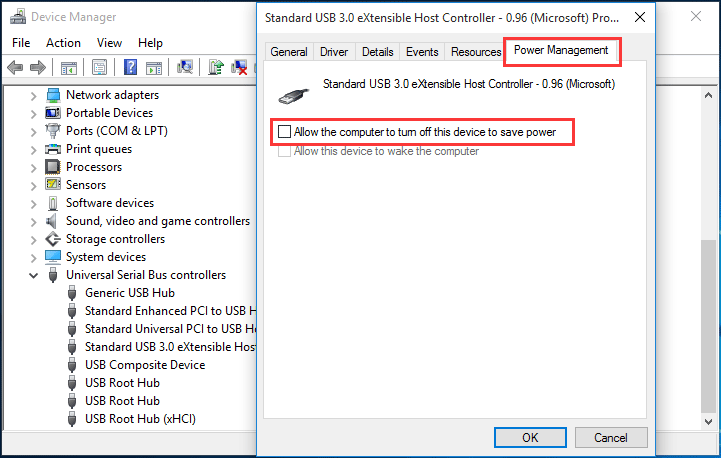
By doing this, it will make sure that the system will not turn off the USB device when you are using the computer but don’t use the USB device for some time.
Solution 3: Reinstall Universal Serial Bus Controllers Driver in Compatibility Mode
If you are using an external hard drive which keeps disconnecting and reconnecting in Windows 10, you need to use the OEM driver. Perhaps, the driver can work well in the previous version, but it doesn’t work after an update. Then, you will need to reinstall it in the Compatibility Mode.
Many of you don’t know how to do this job. Now, you need to follow this guide:
Step 1: Download the latest version of the Universal Serial Bus controllers driver from the manufacturer’s website. Please download the proper driver according to your own situation.
Step 2: When the download process finishes, you need to find the setup file on the specified folder, right-click on it and choose Properties from the popup list.
Step 3: Switch to the Compatibility tab. Then, check the Run this program in compatibility mode for option and choose an older Windows OS like Windows 7. Please make sure that the driver can work normally under the selected OS. At last, press the Apply and OK buttons successively to save the change.
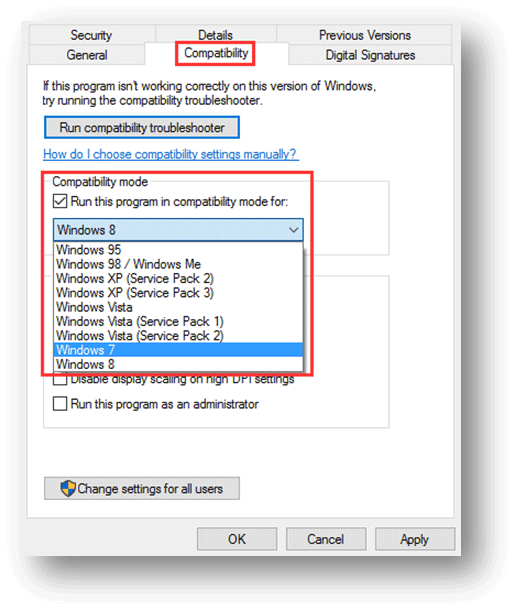
After these three steps, you need to restart the computer to see whether USB keeps disconnecting and reconnecting issue disappears.
Solution 4: Run Hardware and Devices Troubleshooter
Some hardware or device issues can also lead to USB devices disconnecting and reconnecting Windows 10/8/7. Then, you can run Hardware and Devices Troubleshooter to fix the hardware or device issue.
This automated troubleshooter can identify and resolve the issues that it finds. You can follow these steps if you are using Windows 10:
Step 1: Type Troubleshooting into the Search bar on the desktop and then press the Enter key. After that, choose the first option from the search result.
Step 2: You will enter Troubleshoot computer problems interface directly. Next, choose the Configure a device option under Hardware and Sound.
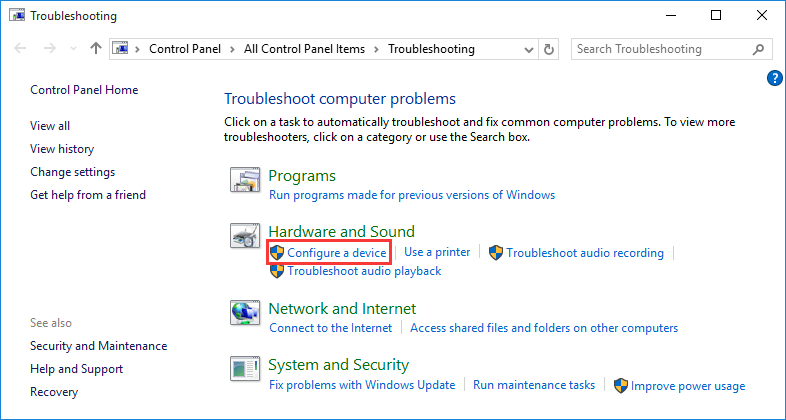
Step 3: You will enter the Troubleshooter interface. Then, check the Apply repairs automatically option or not according to your own requirement. Next, click on the Next button to continue.
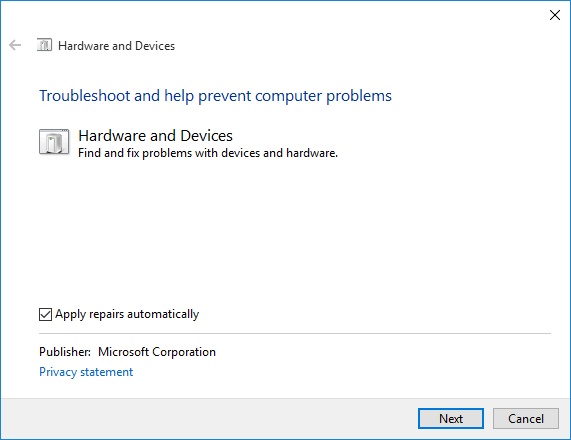
Step 4: Troubleshooter will begin to scan and fix the problems. If you check the Apply repairs automatically option, it will fix the found issues by itself. If not, you will see a scan report. Then, you need to choose the ones you want to fix and click on the Next button to fix the issues.
At last, you need to reboot the computer and check whether USB disconnects after few seconds.
Normally, these 4 solutions can help you to get rid of USB keeps disconnecting issue effectively.
However, you may find that you can’t access the USB drive after solving USB hub keeps disconnecting and reconnecting issue. In this situation, you may need to format the drive to its normal state.
You must know that format will delete all files on the target USB drive. If there are some important files on that drive, you’d better use a piece of free data recovery software to restore the data in advance.
Are you looking for a way to retrieve inaccessible USB drive data? Read the next part to get a useful solution.
Recover Files from Inaccessible USB Drive after Fixing USB Keeps Disconnecting
If you want to recover data from an inaccessible USB drive, you can try MiniTool Power Data Recovery, a free Windows data recovery software.
This data recovery tool is specially designed to recover your lost and deleted files under different situations. No matter the storage drive is formatted, damaged, or inaccessible, you can always use this software to rescue your important files.
You can first try the free edition of this software to scan the USB drive and check if it can find the needed files. You can also recover 1GB of files for free.
Now, you can press the following button to get the free edition of this software.
MiniTool Power Data Recovery FreeClick to Download100%Clean & Safe
Then, you can follow this guide to use this software to scan the target USB drive for recovering files.
1. Download and install this freeware on your computer.
2. Connect your USB drive to your computer via a USB cable.
3. Open the software.
4. The software enters the Logical Drives section by default and shows you the drive it can detect. You can find your USB drive, hover over that drive, and click the Scan button to continue.
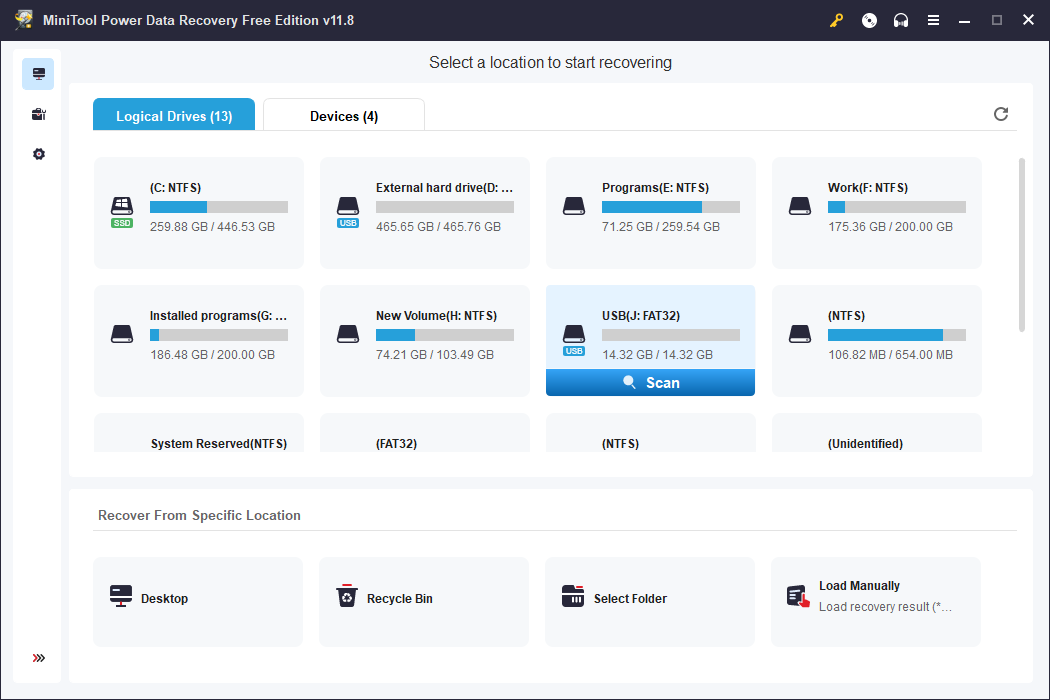
5. The software begins to scan the selected USB drive. The process will last for a while. You should wait until the whole process ends. Then, an interface pops up, saying how many partitions the software scanning gets. You need to click OK to close that interface and go to the scan result interface.
6. The software shows you files by path. You can open each path to find your needed files. You can also switch to Type to make the software show the files by type. If you still remember the name of your needed file, you can use the Search feature to locate the file by name.
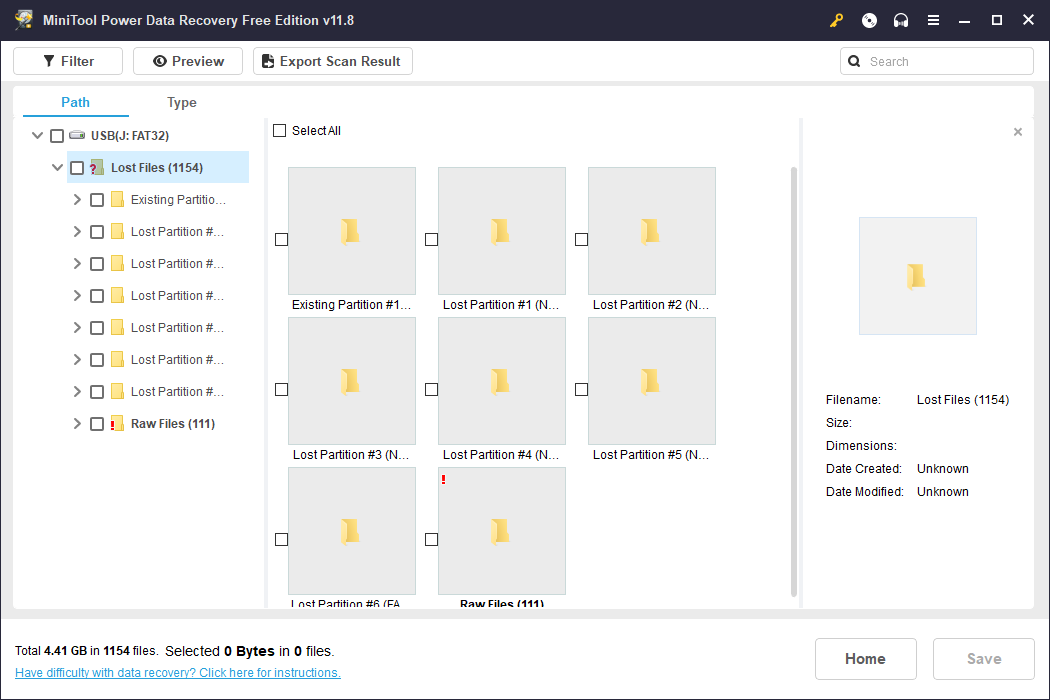
7. If you are not sure whether it is the file you want to recover, you can double-click it to preview it. This software support previewing up to 70 types of files.
8. If you want to use this software to recover your files from your inaccessible USB drive, you can upgrade it to a full edition. After that, you can select your needed files, click the Save button, and select a suitable location to save your selected items. Remember: don’t save them to the original inaccessible USB drive.
Easy, right? Now you can give MiniTool Power Data Recovery a try to do data recovery from external hard drives, USB drives and SD cards that works imporperly.
Format the Inaccessible USB to the Normal State
After recovering data from the inaccessible USB drive, you can feel free to format it to make it work as normal again.
Indeed, there is more than one way to format a USB drive. You can enter the File Explorer or Disk Management to format it. Besides, you can also use Command Prompt to do that job.
But, a third-party partition manager can make this thing easier and more effective. This tool is MiniTool Partition Wizard and its Format Partition is the exact feature you need to use to format the USB drive.
Now, you can read this previous post to learn all of these 4 USB drive formatting methods: How to Format a Hard Drive with Ease in Windows 10/8/7?
Bottom Line
In this article, we introduce four ways to deal with USB keeps disconnecting issue. There is usually one way which can help you out.
However, when you can’t access the USB drive after your fix the USB keeps disconnecting issue, you’d better use MiniTool Power Data Recovery to recover the important files and then format the drive to its normal state.
Perhaps, you may encounter some unexpected issues when you are using the solutions mentioned in this post to fix USB keeps disconnecting issue. Don’t worry, you can just send an email to [email protected] or let us know in the comment. You can also share your ideas and suggestions here.
USB Keeps Disconnecting FAQ
- Open Control Panel.
- Go to Power Options > Change Power Plan/Settings > Advanced Power Settings > USB Settings.
- Disable the setting and then keep the change.
- Open Device Manager.
- Expand the Universal Serial Bus Controllers option.
- Double-click on the USB device to enter the Properties window.
- Switch to the Power Management tab.
- Uncheck Allow the computer to turn off this device to save power.
- Press OK to keep the change.
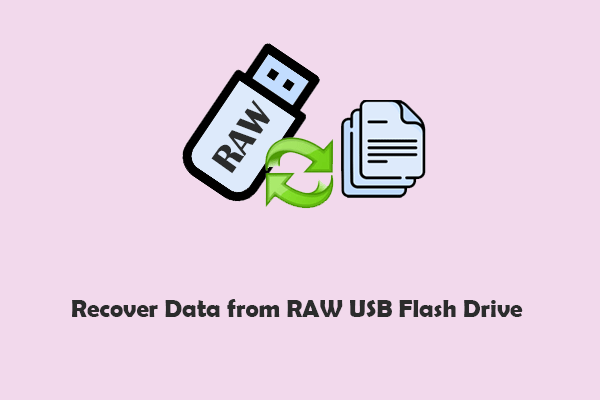
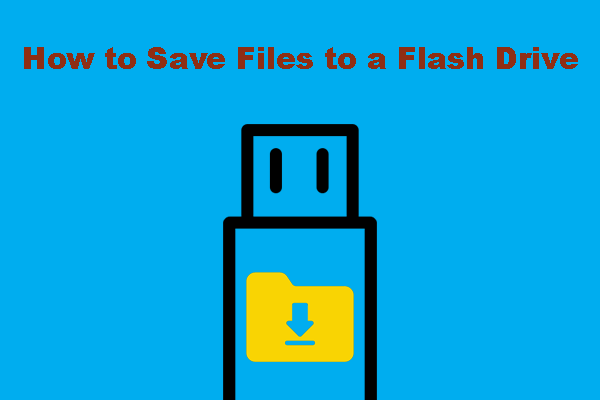
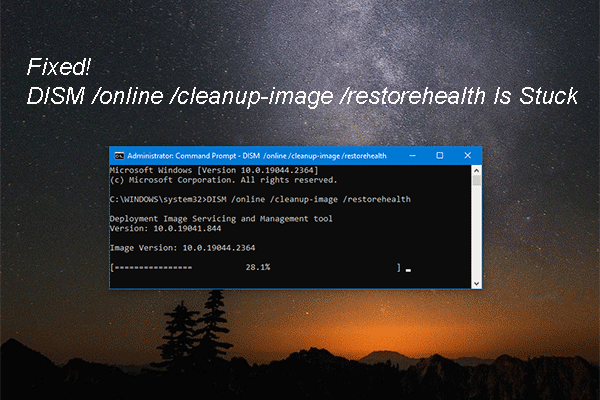

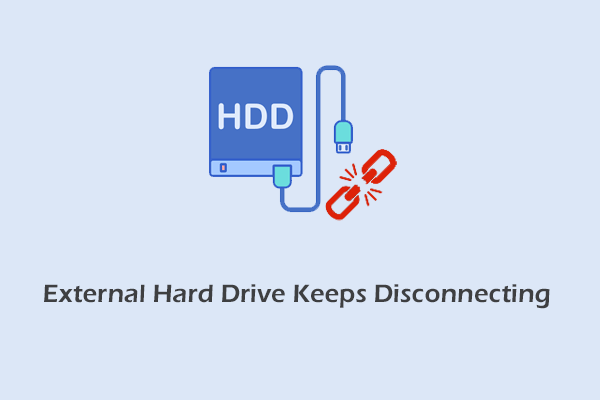
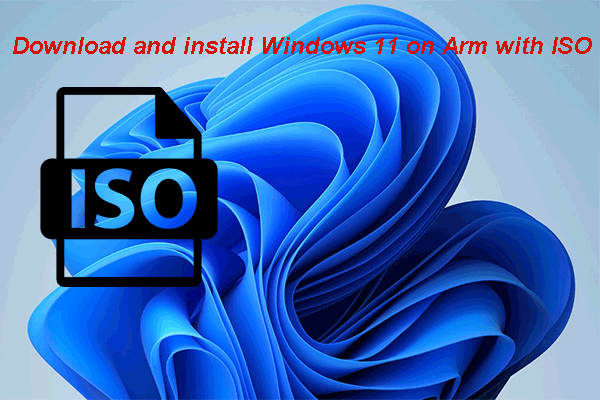
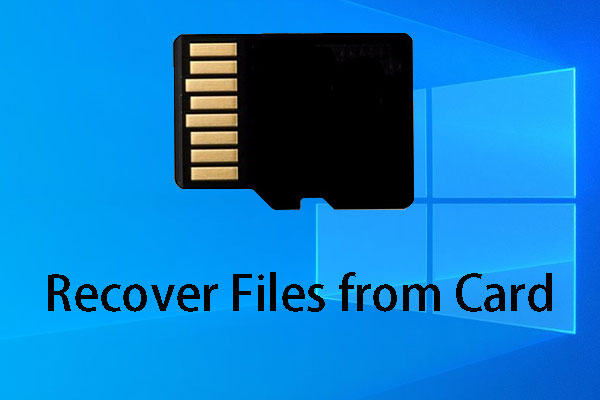

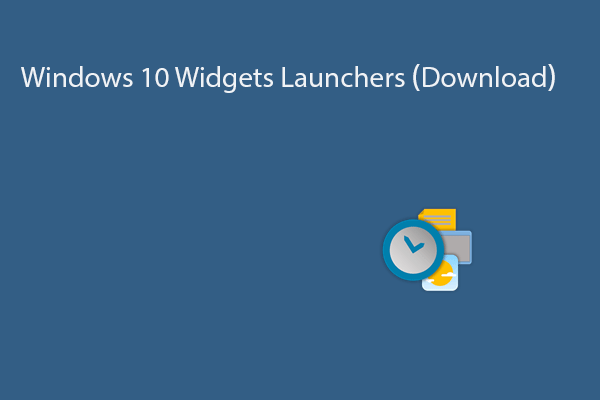
User Comments :